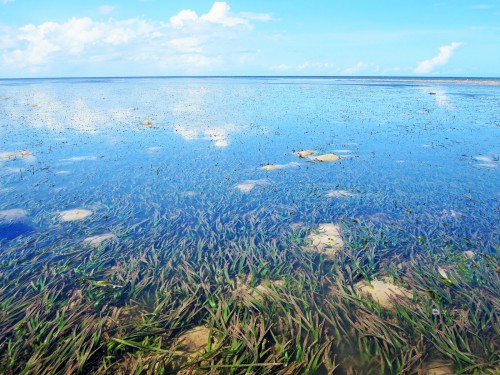Human activity is devastating seagrass beds along the Kenyan coastline, university research has found.
The loss of the aquatic plants is significant because they provide vital food and habitat for marine life, including dugongs and turtles. Seagrass also absorbs carbon from the atmosphere through photosynthesis.

Professor Mark Huxham, from the School of Applied Sciences, said: “This paper is the first from East Africa to document the rate of change of seagrass coverage.
“It shows quite rapid decline – 1.59 per cent per year – probably driven by damage from fishing and increasing human pressure.”
The research team used satellite images to examine the coverage of seagrass, which grows along the shoreline in shallow ocean.
They compared current images of four sites with those from 15 and 30 years ago, concluding that the seagrass shrinkage was equivalent to losing an area the size of 756 football fields annually.
Human activities are thought to be the main factor, with fishing nets, boats and anchors tearing through the meadows, leading to carbon that would have been locked up by the seagrass ending up in the atmosphere instead.
The research team wrote: “Seagrass decline is often caused directly by fishing pressures and urban development, and indirectly by eutrophication and climate change.
“In sites such as Gazi Bay, we found numerous geometrical scars indicating fishing damage to seagrass meadows; anecdotal information suggests this occurs along the southern Kenya coast.
“Seagrass loss in the north may be related to the destruction of mangroves for large-scale irrigation, aquaculture and rice paddies, leading to sedimentation, thus reducing the area of seabed suitable for seagrasses.”
The team suggest future management strategies should focus on promoting sustainable fishing practices and non-destructive land-use, and on highlighting the importance of seagrass habitats.
The thin(ning) green line? Investigating changes in Kenya’s seagrass coverage is published in the Biology Letters journal